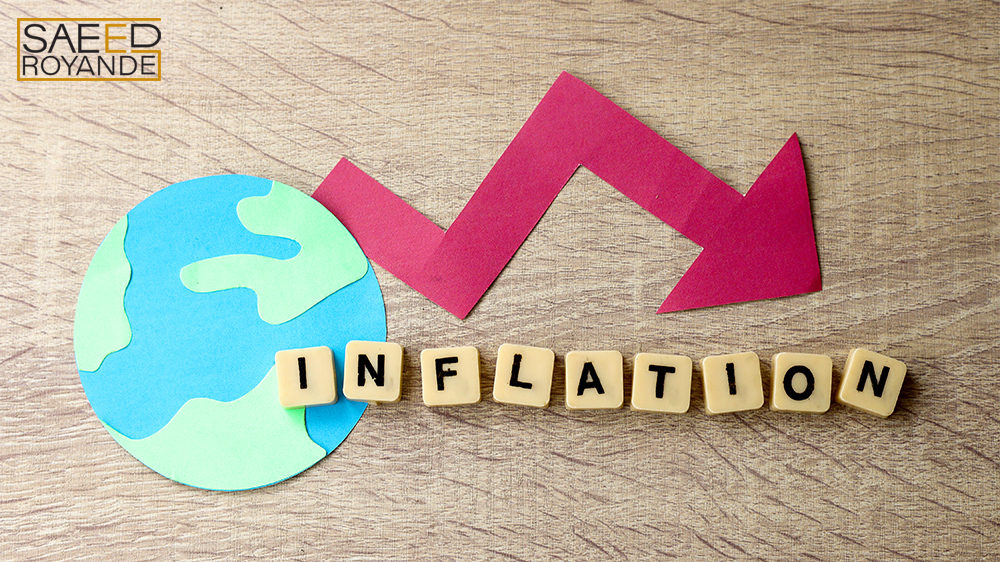Terrorism is a worldwide problem that endangers world stability and progress. Violence or the threat of violence employed by non-state actors for political, religious, or ideological ends is what is meant by the term “terrorism.” Both the direct and indirect costs of terrorism have the potential to be high. Terrorism’s wide-ranging effects on the economy, from the loss of physical capital and human lives to the rise in volatility on financial markets, the interruption of travel and business, and the redirection of funds from productive to defensive endeavors, are a question asked by many. So, let’s talk about what this means for policy and what may be done to lessen terrorism’s financial toll.
How terrorism damages physical capital and human lives
Direct economic ruin is one of terrorism’s most visible and immediate repercussions. Physical capital, or the infrastructure, buildings, equipment, and other assets necessary for economic activity, can be harmed by terrorist attacks. The World Trade Center buildings in the United States, the Pentagon, and other critical infrastructure were all destroyed or severely damaged in the 9/11 attacks. Between $27.2 billion to $52 billion were lost in direct economic terms as a result of the 9/11 attacks. An estimated €146 million in direct economic losses resulted from the explosions in Madrid. Human capital, including the education, experience, and health of a people, is vulnerable to terrorist attacks. Human capital can be diminished by terrorism because of its effects on life expectancy, the quality of life for survivors, the level of education achieved, and the state of health. Many survivors of the 2015 Paris attacks, which claimed 130 lives and injured over 400, struggle with PTSD and other mental health issues. The Easter bombs in Sri Lanka this year claimed the lives of 269 people and injured over 500 more, hurting the economy and the safety of countless neighborhoods.

Out of business
How Terrorism Causes Volatility and Risk Aversion in Financial Markets
Terrorism affects the economy by sowing seeds of doubt and dread among investors. As a result of terrorism, investment, consumption, and trade may all fall. Consumers, investors, and legislators can all have their hopes and trust shaken by terrorist acts, which in turn can affect their actions. For example, the 2008 Mumbai attacks in India, the 2016 Brussels bombings in Belgium, and the 2020 Vienna attack in Austria are all good instances. The Global Terrorism Index, the World Bank, and the International Monetary Fund are all credible places to look for data and estimates of terrorism’s monetary impact. Uncertainty and fear in the markets due to terrorism can have a chilling effect on economic activity. Volatility and risk aversion rise in an uncertain environment, dampening spending, saving, and commerce. The Bombay Stock Exchange Sensex index, for example, dropped 3.5% the day following the 2008 Mumbai attacks, which killed 166 people and injured over 300. Hotel occupancy rates decreased by 25% in Mumbai and 15% across the country after the attacks. The Belgian stock market index BEL, dropped 1.8% the day after the 2016 Brussels bombings, which killed 32 people and injured over 300. Retail sales dropped 3.6% in March 2016 compared to March 2015 as a result of the assaults, which also dampened consumer confidence and expenditure. Consumers, investors, and legislators can all have their hopes and trust shaken by terrorist acts, which in turn can affect their actions. Consumer confidence, for instance, hit a new low in the United Kingdom after the 2017 Manchester Arena bombing, which killed 22 people and injured over 800. The political atmosphere was also impacted by the incident, as it occurred during the general election campaign in June of 2017. Due to the election’s hung parliament outcome, political uncertainty has intensified, and the value of the pound has dropped. The consumer confidence index also dropped to its lowest level since April 2020 after the 2020 Vienna incident in Austria, which killed four people and injured over twenty. The attack caused a political problem as well since the uncovered security lapses led to the interior minister’s resignation. According to the World Bank, annual GDP growth is reduced by around 0.4 percentage points for every one standard deviation increase in terrorist attacks per capita. According to the International Monetary Fund, GDP per capita growth slows by around 0.7 percentage points annually for every one standard deviation increase in terrorist fatalities per capita.

Business failure young middle eastern boss
Terrorism Re-allocates Resources from Offense to Defense
Security spending may rise in response to terrorism, taking money and manpower away from more useful ends. Spending on security might encompass public and commercial sectors, such as the military, law enforcement, intelligence, and counterterrorism services, and individual families and enterprises. Investing in security has the potential to benefit the economy by increasing productivity, employment, and consumer demand, all while bolstering safety. Public and private investment can be reduced, public debt and taxes can rise, and economic efficiency and innovation can suffer if money is spent on security instead. The United States, the United Kingdom, France, Israel, and Pakistan are just some of the countries and areas that have boosted their security spending as a result of terrorism. Terrorism can alter resource allocation because it raises the bar for security spending. Investing in security has the potential to benefit the economy by increasing productivity, employment, and consumer demand, all while bolstering safety. It has been predicted that between 2003 and 2016, the US Department of Homeland Security (DHS) created almost 1 million jobs. The World Bank found that a one percentage point increase in military spending leads to an additional 0.7 percentage points in GDP growth in emerging countries. An increase in security spending has been shown by the International Monetary Fund to reduce the likelihood of terrorist strikes by 13%. Public and private investment can be reduced, public debt and taxes can rise, and economic efficiency and innovation can suffer if money is spent on security instead. For instance, the Congressional Budget Office found that the cost of the US wars in Afghanistan and Iraq between 2001 and 2019 was an estimated $2.4 trillion. Education, healthcare, infrastructure, and alternative energy are just some of the areas where this money could have been put to better use. The National Bureau of Economic Research found that industrialized countries’ investment decreased by 0.6 percentage points of GDP for every one percentage point increase in military spending. According to research conducted by the European Commission, raising spending on security raises tax collection by 0.4% of GDP but raises public debt by 0.8% of GDP. According to research conducted at Oxford University, a 0.3 percentage point reduction in economic complexity and diversity can be expected for every 1 percent rise in security spending.

Business failure disappointed businessman
How the threat of terrorism affects international trade and tourism costs
By raising transaction costs, decreasing demand, and disrupting supply chains, terrorism can harm trade and tourism. Many nations and areas rely heavily on exports and imports, as well as tourism, for their economies. Trade and tourism are vulnerable to terrorism because they are critical to many economies’ ability to generate revenue, hire new workers, and expand. By raising transaction costs, decreasing demand, and disrupting supply chains, terrorism can harm trade and tourism.
Security measures, insurance premiums, transportation delays, and border controls are just some of the ways that terrorism raises the cost of doing business and traveling. Indonesia’s government, in response to the 2002 Bali bombings, which killed 202 and injured over 200, increased spending on security by 12% in 2003. As a result of the bombings, visitors to Indonesia will pay 25% more for travel insurance. The World Trade Organization (WTO) conducted a study and concluded that for every one standard deviation increase in terrorist occurrences, bilateral trade flows are reduced by around 4 percent. Demand for commerce and tourism may fall as a result of terrorist attacks since consumer confidence, income, and preferences may all suffer. The 2013 attack on the Westgate Mall in Kenya, which killed 67 and injured more than 175, had a significant impact on the Kenyan tourism industry, leading to an 11% drop in arrivals and a 7% drop in revenues in 2014. As a result of the attack, retail sales fell by 3.3% in the final quarter of 2013. According to research conducted by the United Nations World Tourism Organization (UNWTO), a terrorist attack results in an average 8% drop in tourist arrivals to the country in question.
Destroying infrastructure, disrupting production, and lowering competitiveness are all ways in which terrorism can harm supply chains for trade and tourism. For instance, in 2015, the tourism industry in Tunisia lost over $500 million due to the Sousse Beach incident, which killed 38 people and injured more than 39. The textile industry, which employs over 160,000 people and accounts for about 15% of Tunisia’s exports, was also hit by the attack. The World Bank determined that the GDP growth of a country hit by terrorism is reduced by around half a percentage point. The United Nations World Tourism Organization reports that in 2019, international tourist arrivals hit 1.5 billion, up 4% from 2018. Terrorism has harmed both the supply and demand for tourists, which is not reflected in this number. According to the UNWTO, the worldwide tourism industry lost $8.8 billion due to acts of terrorism in 2019. The World Trade Organization estimates that the growth rate of global merchandise trade volume slowed to 1.2% in 2019 from 2.9% in 2018. Terrorism affects trade costs and flows, but these effects are not reflected in this number. The World Trade Organization estimates that $18 billion in exports were lost worldwide due to terrorism in 2019.

Red arrow down shape with inflation words on world
Dealing with the Economic Impact of Terrorism
Terrorism is a worldwide problem that endangers world stability and progress. Both the direct and indirect costs of terrorism have the potential to be high. Terrorism has been proven to have far-reaching consequences for the economy, including the loss of life and material goods, the heightening of market uncertainty, the interruption of trade and tourism, and the redirection of funds from productive to defensive endeavors. Finding a happy medium between safety and economic viability is a major challenge for policymakers. Spending on security is essential in the fight against terrorism, but it has unintended consequences, such as reducing economic complexity and diversity, increasing governmental debt and taxation, and discouraging private investment. Therefore, security spending should be economical, productive, and open; it should also not reduce the provision of other public services or reduce the quantity of those services.
However, improving the economy’s ability to withstand and rebound from a terrorist assault is yet another policy challenge. The capacity of an economy to endure and adjust to shocks is what is meant by “resilience,” whereas the capacity to “recover” is what is meant by “improvement.” Factors that affect resilience and recovery include the kind and frequency of attacks, the strength of social and institutional supports, the effectiveness of policy responses, and the degree of international collaboration. To this end, authorities should employ a holistic and coordinated strategy that takes into account both the origins and effects of terrorism as well as the requirements and hopes of all parties concerned. To reduce the population’s susceptibility and increase their opportunities, a third policy task is to increase access to financial education and investment. Better financial decisions, asset protection, and risk management are all possible outcomes of educating individuals about money management. Investing in one’s financial future can improve one’s standard of living and hence one’s ability to contribute to their country’s economic and social growth. Therefore, governments should back efforts to expand access to banking services and other financial products for all demographics.

Bankruptcy concept depressed male entrepreneur
The impact of terrorism on entrepreneurs and business
Here are a few factors that determine the effect of terrorism on entrepreneurs and businesses:
- Terrorism can increase the cost of doing business through higher insurance premiums, security expenses, and transportation delays.
- Terrorism can damage or destroy critical infrastructures, such as electricity, water, and communication systems, that are essential to business operations.
- Terrorism can reduce the confidence and trust of consumers, investors, and entrepreneurs, resulting in lower spending, investment, and innovation.


